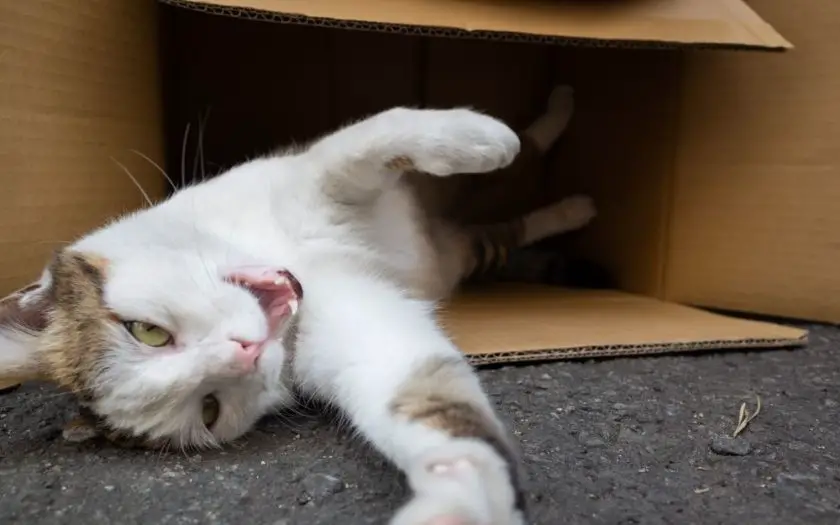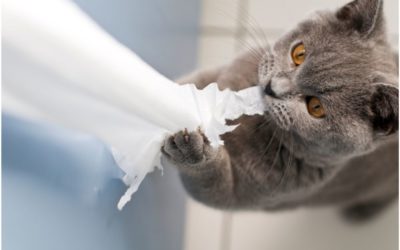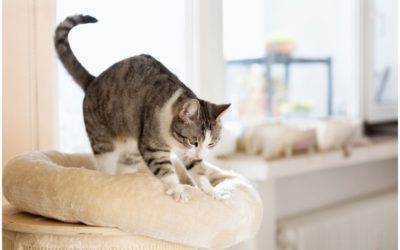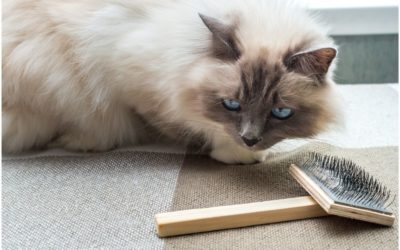Cats are loved worldwide, but I think we can all agree they perform odd and comical behaviors sometimes that can leave us baffled! Perhaps you have witnessed your cat shoving his head into your elbow then falling asleep, and you have wondered what it means. Or maybe your cat is spraying all over your sofa, and you just don’t know how to stop it. In this post, we will explore some of the more common cat behaviors, so you can get to understand your beloved feline companion better.
Below are some common cat behaviors and what they mean:
Why do cats flick their tails?
Cats communicate a lot through the positioning of their tails, but the tail-flick is probably the hardest to decipher. This is because the flick can have several meanings depending on the context. If the tail is flicking in a smooth, fluid motion, your cat is probably just playful and content. Especially if the ears and eyes are relaxed
If your cat’s tail flicking is more forceful, then it may indicate negative emotions such as agitation or aggression. Dilated pupils, ears back, and a crouched rigid posture alongside the tail flicking is often a warning. So, you may need to proceed with caution!
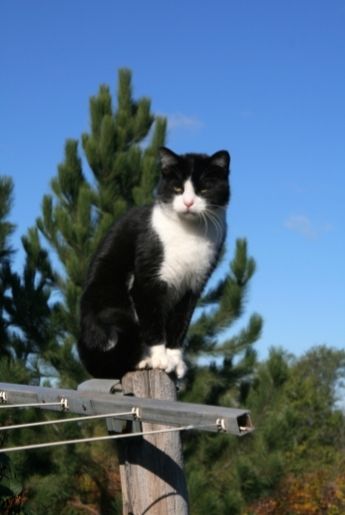
Why do cats seek high vantage points?
Have you ever wondered why your cat chooses to squeeze into a space on your shelf or sits on the high back of the sofa instead of on the cushions? When up high, cats have a perfect view of the environment, which makes it much easier to spot tasty prey! However, this behavior is not just predatory..
Cats also use vertical spaces to protect themselves from potential predators. In the home environment, your cat may choose to escape to a high spot to get away from the bustle of family life, especially if children are running around or strangers have entered their territory.
Why do cats spray urine?
When a cat holds his tail up high, and it quivers slightly, he is marking his territory by spraying urine onto a surface. This can be incredibly irritating for owners if the behavior has gotten out of control, but there is good news! Spraying in neutered cats is often a sign of stress, caused by either the addition of a new family member or the presence of another cat in or around their home.
By spraying, your cat is telling the intruder that this is his territory, and they need to leave. If you can identify the cause of the stress and take steps to reassure your cat that there is no threat, then the spraying behavior should reduce over time.
Why do cats love dairy products?
Does your cat go nuts for a yogurt or a glass of milk? Despite being carnivores, cats are very attracted to the protein and fats found in dairy products. Cats that haven’t even tried cheese before will be immediately attracted to its smell! So, is it safe to offer your cat a bit of yogurt or ice cream now and then?
The answer is a little complicated. A small amount may not do any harm, but it is important to remember that all adult cats are lactose intolerant and may suffer some unwanted side effects if they eat too much dairy, such as diarrhea. Kittens need nourishing milk to aid their development. However, once the weaning stage is over, kittens and adult cats no longer require any dairy products in their diets.
Why do cats shove their heads in your elbow or hand?
Have you ever had your cat curl up on your lap, shove his head in the crook of your arm, then fall asleep? If you have, you should feel incredibly honored, as this is a strong sign of trust. A cats’ head and nose are very sensitive parts of the body, which is probably why they insist on further fussing if you stroke them there!
Cats that lower their defenses and give you full access to such a sensitive area, are showing you that you are their favorite person. It could also be a protective position that gives them a sense of security and warmth.
Why do cats play with live prey?
Have you witnessed your cat playing with a mouse after he has caught it? This may just seem like a bit of cruel fun, but there is actually a good reason for it. Cats are opportunistic hunters, which means they wait for an opportunity and then strike. However, prey animals are not as vulnerable as they seem!
Mice and rats will often bite their capture in an attempt to get away. This can be painful for your cat. By capturing and rereleasing several times, your cat is trying to tire out its prey so the risk of biting is minimalized.
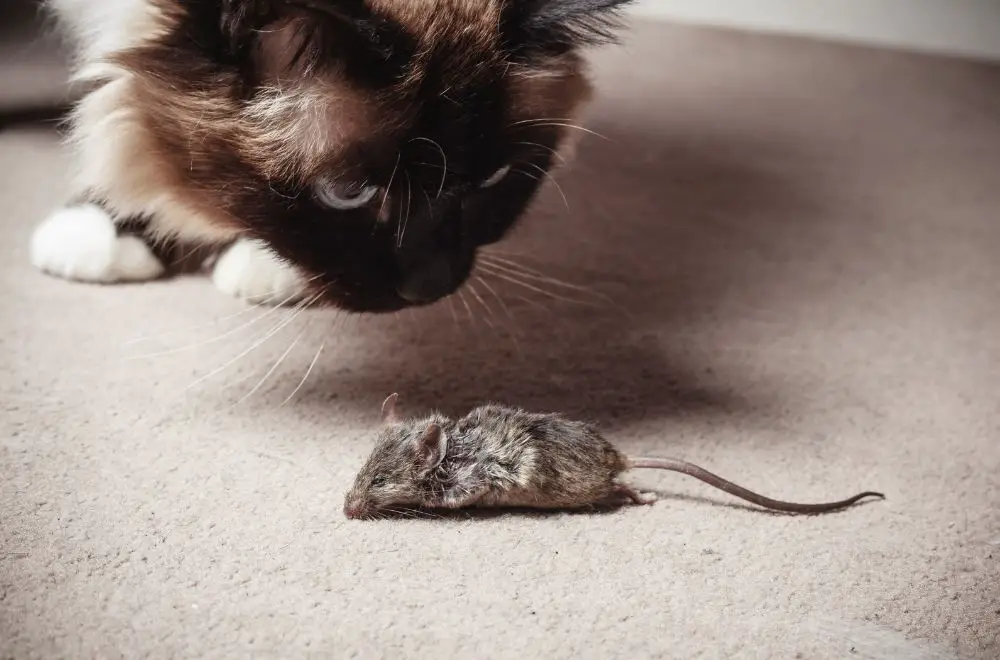
Why do cats wiggle their butt?
This is perhaps one of the most adorable cat behaviors yet it is believed to be a very important factor in successful hunting! You may have noticed your cat wiggling his butt just before he pounces on unsuspecting prey. Scientists are still not certain of the root cause of the behavior, but they do have several theories.
Perhaps the most widely accepted theory is that butt wiggling helps cats get into position for a pounce. When they are wiggling, they are probably readjusting their paws and feeling the buoyancy of the surface they are on, to determine how much force is needed. This behavior may also play a part in judging the position and distance of the prey item by helping cats to adjust their vision.
Why do cats sleep all day?
At some point in every cat person’s life, they have probably wished they could have been a cat instead. Let’s face it, cats have the best lives! They get fed, petted, and then sleep most of the day away. It may surprise you to know that on average, our felines sleep for 16-18 hours every day! This behavior is thought to stem from their wild ancestry as hunters.
Wild cats expend a lot of energy stalking and capturing prey, which they need to do in order to survive. This means that the rest of their time is often used to rest and build up energy reserves for the next hunt. It is worth mentioning that cats are very light sleepers, so they can still sense their surroundings and pounce or escape at a moment’s notice.
Final words
Most of the observed feline behaviors that you consider to be odd are actually perfectly normal and necessary for cats. However, some of them can become troublesome if performed excessively. It is important to distinguish natural cat behaviors from unnatural ones, which is done by observing your feline companion regularly. This way, you will know if something is not quite right and be able to address the problem swiftly.

